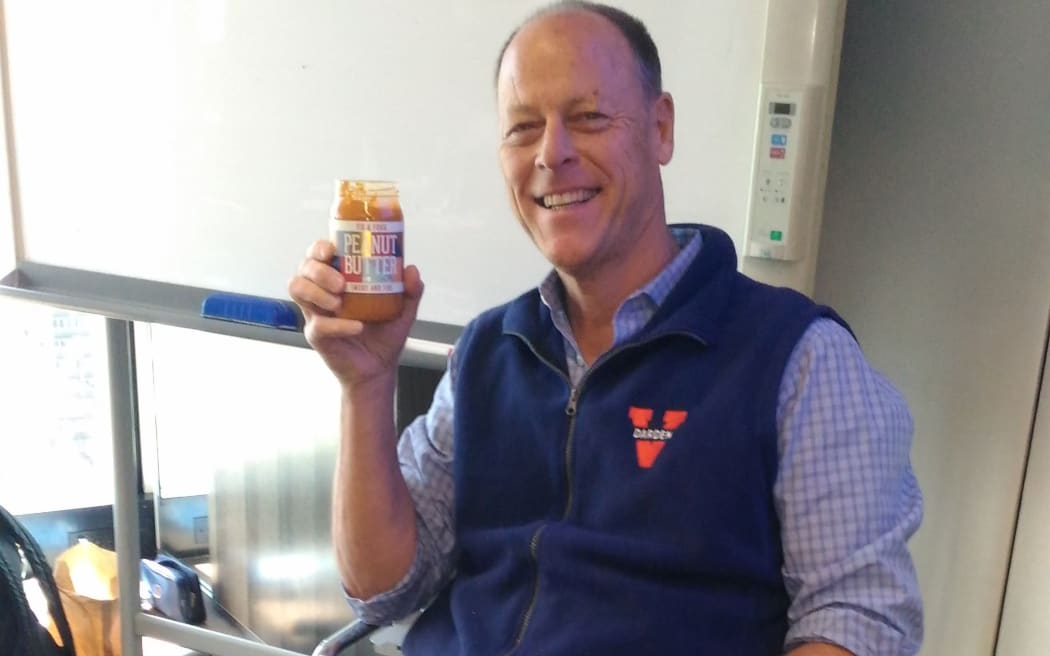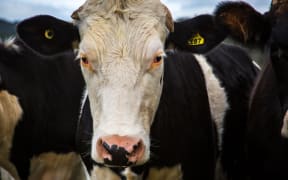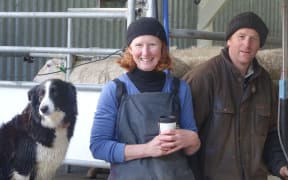Organic industry leaders from the US are pushing for New Zealand to develop a national standard for organics so that the sector can cash in on the thriving market.

New Agriculture Minister Damien O'Connor. Photo: VNP / Phil Smith
Eighty-nine countries have a single national standard for organics, but New Zealand does not.
Three US entrepreneurs are in New Zealand for an organic market bootcamp this week, and have met with the new Agriculture Minister Damien O'Connor to discuss why a national standard is crucial.
The main speaker is Gary Hirshberg, who grew Stonyfield Farm Yoghurt, a seven cow organic farm, into a $400 million business that is now the worlds leading organic yogurt producer.

Gary Hirshberg. Photo: Supplied
Mr Hirschberg, who sits on eight corporate boards in the food industry, said they were all being driven by a consumer that did not exist 10 years ago.
Consumer demands were rapidly changing, and people cared more about their food production.
"This consumer is not going to be satisfied with a 'no' answer - if New Zealand doesn't deliver products with a seal that is recognisable, understandable, and equivalent to ours then they are going to find these products somewhere else."
One board that Mr Hirshberg was on bought most of its beef from Queenstown.
"They want organic, and if Chile or Argentina delivers before New Zealand does then they're going to take their business there.
"There's an enormous opportunity, but there's also some urgency," he said.
Organics in New Zealand have been slow to take off, he said.
"You're not alone in that way, it took eleven years in the US from the moment many of us - certifiers, farmers, and processors - started asking our government to approve and establish this seal.
"In a smaller country where you already have such fantastic agricultural productivity and great appreciation of your product...you haven't heard that demand for organics that you're hearing now."
Currently there are five different types of accreditation for organic products in New Zealand.
The Ministry for Primary Industries lists BioGro and AsureQuality as the two third party agencies for organic certification for export.
The New Zealand organic sector is $0.5 billion, with $260 million of exports and $240 million sold domestically. The sector has grown by 11 percent a year since 2012.
Mr Hirshberg said the US organic market had grown from $5.5 billion in 2001, before a national standard was established, to a $50 billion sector today.
'That's when the industry really took off'
Another speaker at the bootcamp is Walter Robb, the former co-chief executive of the Whole Foods Market in the US, which was sold to Amazon for nearly $14 billion this year.
He said New Zealand had the potential for double digit growth far into the future, but to get there the industry needed to invest in some sort of infrastructure - such as a national standard or seal.
Mr Robb said customers wanted to know exactly what they were getting.
"From our experience in the US, once we put that together through legislation the markets were settled and established, and people knew that this seal meant something - that's when the industry really took off."

Walter Robb holding peanut butter from Fix and Fog. Photo: Supplied
Agriculture globally is basically going down two paths, said Mr Robb.
"One is the large production export business which is commodity driven and is subject to the vagaries of price depending on what markets are doing."
The other is more specialised agriculture which has various attributes - such as organic.
"The customers are increasingly saying 'those are the products that I want'...
"So the question is - how do you continue to support your existing production agriculture, which is a very healthy sector in the economy here, but how do you also step up the support for this other sector of agriculture and products, and product making - that is really really growing."
Damien O'Connor said a single national standard was a reasonable request from the organic sector.
He saw an opportunity for organics and the need for the government to make sure everything leaving the country was certified properly.
There had been some discussion in the ministry in the past, and he would follow through on it as quickly as possible.
"I can't answer for the previous government, all I can say is that our government understands the value of these areas and we're going to get on with it."
"I need a full briefing on where we've got to at the moment and some of the issues that may have been raised."
There were divisions across the sector and a whole lot of issues, he said.
"We've got to sort that out as soon as possible. We're at risk in a number of these areas, including manuka honey - the longer the industry and officials... and within the industry there is division...the more at risk we are."
Mr O'Connor said he was aiming to have a clear timeline for getting a national standard underway, before Christmas.




